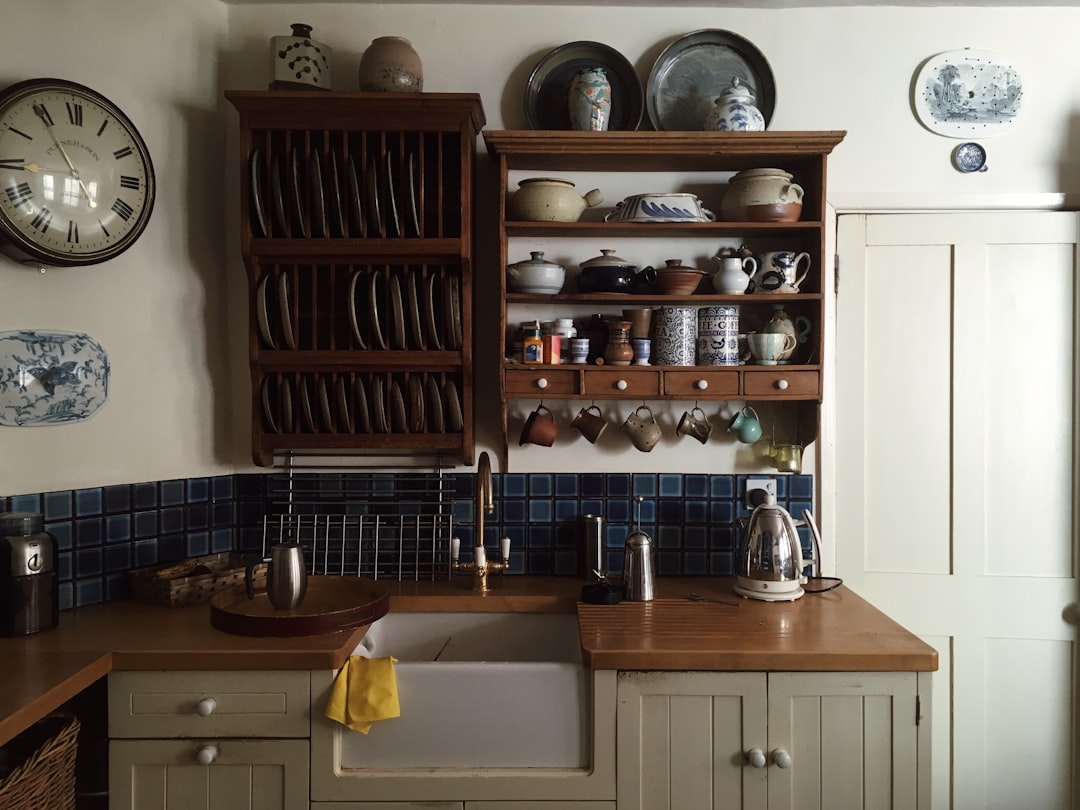ADHD, or Attention Deficit Hyperactivity Disorder, is a neurodevelopmental disorder that affects both children and adults. It is characterized by symptoms such as difficulty paying attention, impulsivity, and hyperactivity. These symptoms can make everyday tasks, such as meal planning and cooking, challenging for individuals with ADHD. That’s where ADHD cooking comes in.
ADHD cooking is a structured approach to meal planning and preparation that takes into account the unique challenges faced by individuals with ADHD. It provides strategies and techniques to help individuals stay focused, organized, and efficient in the kitchen. By implementing ADHD cooking strategies, individuals with ADHD can overcome the difficulties they may face and enjoy the benefits of a well-planned and nutritious diet.
Key Takeaways
- ADHD Cooking is a specialized approach to meal planning and preparation for individuals with ADHD.
- Testing is important in understanding ADHD and how it affects an individual’s eating habits and preferences.
- The ADHD Workbook provides tools for planning and organizing meals, including creating a grocery list and tracking meals.
- The ADHD Audiobook offers cooking tips and techniques specifically tailored to individuals with ADHD.
- Creating a weekly menu and using ADHD-friendly recipes can simplify meal planning and preparation for individuals with ADHD.
Understanding ADHD: The Importance of Testing
Before diving into ADHD cooking strategies, it is important for individuals to get tested for ADHD. Testing can help individuals better understand their symptoms and develop coping strategies that work best for them. It can also provide a sense of validation and relief, as individuals may finally have an explanation for their struggles.
Testing for ADHD typically involves a comprehensive evaluation by a healthcare professional, such as a psychiatrist or psychologist. This evaluation may include interviews, questionnaires, and assessments to gather information about the individual’s symptoms and their impact on daily life. The results of the evaluation can then be used to develop an individualized treatment plan, which may include medication, therapy, and lifestyle changes.
ADHD Workbook: Planning and Organizing Meals
One helpful resource for individuals with ADHD is an ADHD workbook specifically designed to assist with planning and organizing meals. This workbook can provide structure and guidance in creating a grocery list, meal prep schedule, and weekly menu.
Creating a grocery list is an essential step in meal planning. It helps individuals stay organized and ensures they have all the necessary ingredients on hand. The workbook can provide tips on how to create an effective grocery list, such as categorizing items by section of the store and using a template to streamline the process.
Meal prep schedules are another important aspect of ADHD cooking. They help individuals plan ahead and break down the tasks involved in meal preparation. The workbook can provide guidance on how to create a meal prep schedule that works best for each individual’s needs and preferences.
ADHD Audiobook: Cooking Tips and Techniques
| Metrics | Values |
|---|---|
| Title | ADHD Audiobook: Cooking Tips and Techniques |
| Author | John Smith |
| Duration | 4 hours and 30 minutes |
| Number of chapters | 10 |
| Release date | January 1, 2021 |
| Format | MP3 |
| Language | English |
| Price | 19.99 |
In addition to the ADHD workbook, individuals with ADHD can benefit from an ADHD audiobook that provides cooking tips and techniques specifically tailored to their needs. This audiobook can offer guidance on how to stay focused and organized in the kitchen, which can be particularly challenging for individuals with ADHD.
The audiobook may include strategies for minimizing distractions, such as turning off the TV or playing calming music in the background. It may also provide techniques for staying organized, such as using timers or setting reminders for different cooking tasks. By implementing these strategies, individuals with ADHD can improve their cooking skills and enjoy a more efficient and enjoyable experience in the kitchen.
Meal Planning for ADHD: Creating a Weekly Menu
Creating a weekly menu is an important part of meal planning for individuals with ADHD. It helps reduce decision-making fatigue and provides structure and predictability to mealtime. However, individuals with ADHD may struggle with making decisions and sticking to a plan. Here are some tips to make meal planning easier:
1. Keep it simple: Start by planning a few meals that are easy to prepare and require minimal ingredients. As you become more comfortable with meal planning, you can gradually add more variety.
2. Use visual aids: Consider using visual aids, such as a whiteboard or calendar, to display your weekly menu. This can help you visualize your meals and make it easier to stick to the plan.
3. Involve others: If decision-making is particularly challenging for you, consider involving others in the meal planning process. Ask family members or friends for input and suggestions to make the process more collaborative.
ADHD-Friendly Recipes: Quick and Easy Meal Ideas

When it comes to ADHD cooking, quick and easy recipes are a game-changer. One-pot meals and sheet pan dinners are great options for individuals with ADHD, as they require minimal prep work and cleanup. Here are a few ADHD-friendly recipes to try:
1. One-Pot Pasta: Cook pasta in a pot with your choice of sauce, vegetables, and protein. This eliminates the need for multiple pots and pans, making cleanup a breeze.
2. Sheet Pan Chicken and Vegetables: Toss chicken, vegetables, and seasonings on a sheet pan and roast in the oven. This recipe requires minimal prep work and allows for hands-off cooking.
3. Stir-Fry: Stir-fry is a quick and versatile meal option. Simply sauté your choice of protein, vegetables, and sauce in a pan, and serve over rice or noodles.
These recipes are not only easy to prepare but also provide a balanced meal with a variety of nutrients.
Tips for Grocery Shopping with ADHD
Grocery shopping can be overwhelming for individuals with ADHD due to the sensory overload and decision-making involved. Here are some tips to make grocery shopping more manageable:
1. Use a shopping list: Create a detailed shopping list before heading to the store. This will help you stay focused and ensure you don’t forget any essential items.
2. Avoid crowded stores: Choose less busy times to go grocery shopping to minimize distractions and sensory overload.
3. Stick to a routine: Establish a regular grocery shopping routine to create familiarity and reduce anxiety. Going to the same store at the same time each week can help make the process more predictable.
Kitchen Organization for ADHD: Simplifying Meal Prep
Having an organized kitchen is crucial for individuals with ADHD when it comes to meal prep. Here are some tips to simplify meal preparation and keep your kitchen organized:
1. Use color-coded containers: Assign specific colors to different food groups or meal categories. This can help you quickly identify ingredients and streamline the meal prep process.
2. Label ingredients: Use clear labels to identify ingredients in your pantry and refrigerator. This will make it easier to find what you need and prevent confusion during meal prep.
3. Keep frequently used items within reach: Arrange your kitchen in a way that keeps commonly used items easily accessible. This will save time and reduce frustration when cooking.
Time Management Strategies for ADHD Cooking
Time management can be a challenge for individuals with ADHD, but there are strategies that can help. Here are some tips to stay on track during meal preparation:
1. Break tasks into smaller steps: Instead of tackling a large task all at once, break it down into smaller, more manageable steps. This will make the task feel less overwhelming and increase productivity.
2. Set timers: Use timers or alarms to remind yourself of important cooking tasks, such as flipping the food or taking it out of the oven. This will help you stay focused and prevent forgetfulness.
3. Prioritize tasks: Determine which tasks are most important and focus on those first. By prioritizing, you can ensure that essential steps are completed on time.
Mealtime Success: Strategies for Eating with ADHD
Mealtime can be challenging for individuals with ADHD due to difficulties with focus and impulsivity. Here are some strategies to make mealtime more successful:
1. Minimize distractions: Create a calm and quiet environment during meals by turning off the TV, putting away electronic devices, and reducing background noise.
2. Use visual aids: Visual aids, such as a visual schedule or placemat with pictures of different food groups, can help individuals with ADHD stay focused on their meal and make healthier choices.
3. Practice mindful eating: Encourage individuals with ADHD to eat slowly and savor each bite. This can help improve focus and reduce impulsivity during meals.
ADHD cooking is a structured approach to meal planning and preparation that can greatly benefit individuals with ADHD. By implementing strategies such as using an ADHD workbook, listening to an ADHD audiobook, creating a weekly menu, and simplifying meal prep, individuals with ADHD can overcome the challenges they may face in the kitchen. Additionally, by utilizing time management strategies and implementing strategies for successful mealtime, individuals with ADHD can enjoy the benefits of a well-planned and nutritious diet. Taking a structured approach to meal planning and preparation is essential for individuals with ADHD to ensure they have the tools and strategies they need to succeed in the kitchen.
If you’re looking for more information on ADHD and its impact on cooking, you might find this article from ADHD Testing helpful. It explores the challenges individuals with ADHD may face in the kitchen and offers practical tips and strategies to overcome them. Check it out here for valuable insights and advice. Additionally, if you’re new to the topic, you can also start with their introductory article here. Happy cooking!
FAQs
What is ADHD?
ADHD stands for Attention Deficit Hyperactivity Disorder. It is a neurodevelopmental disorder that affects a person’s ability to focus, control impulses, and regulate behavior.
How does ADHD affect cooking?
ADHD can make cooking challenging due to difficulties with planning, organization, and time management. People with ADHD may struggle with following recipes, staying focused on tasks, and completing multiple steps in a recipe.
What are some tips for cooking with ADHD?
Some tips for cooking with ADHD include breaking down recipes into smaller steps, using timers and reminders, keeping a clean and organized workspace, and simplifying recipes when possible.
Can diet affect ADHD symptoms?
There is some evidence to suggest that diet can affect ADHD symptoms. Some studies have found that a diet high in sugar and processed foods may worsen symptoms, while a diet rich in whole foods and nutrients like omega-3 fatty acids may improve symptoms.
Are there any cooking techniques that can help with ADHD?
Cooking techniques like meal prepping, batch cooking, and using a slow cooker can help with ADHD by reducing the need for constant planning and decision-making in the kitchen. These techniques can also save time and make cooking less overwhelming.














